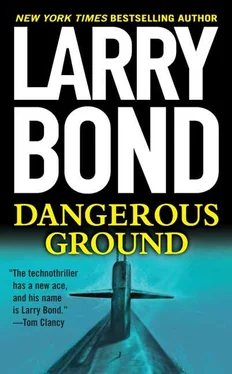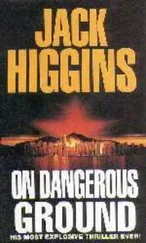To avoid tipping off the criminals, he made several quiet checks, always making sure the enquiry would appear to come from a different part of the government.
And the answer had come quickly. The GRU had indeed falsified the paperwork, but it was not the act of an individual or group of criminals, but the GRU itself. They’d been in too much of a hurry to build a foundation for its “legend,” which helped Kirichenko penetrate the cover quickly. In fact, they’d been rushed — and more than a little scared. Specifically, Soviet Military Intelligence had been handed a hot potato, with orders to fix the problem as quickly, and quietly, as possible.
The Soviet leadership had been cheating on the arms controls accords, producing more warheads than allowed under the treaties. The military had stockpiled them as the ultimate insurance policy, just in case of a surprise attack by the West. Secret even from the armed forces and known only to a few officials, the stockpile would give a devastated Russia a “hole card,” even if all of its other strategic weapons were discovered and destroyed.
Now, with the Soviet Union crumbling around the GRU’s collective heads, the stockpile was a dangerous liability that needed to be disposed of — and swiftly. The warheads could not be easily destroyed. The removed weapons-grade plutonium would raise far too many questions about its origins, and frankly, the money for their disposal would have to be accounted for, if it could be found at all. A simpler and cheaper solution was to just label them as radioactive waste and dump them in the sea.
Kirichenko agreed with their solution, but also saw opportunity in the situation. He did several things. First, he made sure that the special barge was properly scuttled, but not at the location that appeared in the report he sent to GRU headquarters. Then he compiled a list of the people who knew about the operation, and places where there might be records of the shipment or the stockpile.
Finally, using the GRU’s authority, he ordered the deployment of acoustic sensors around the barge. Through some legal trickery — and a few veiled threats — he was able to make the sensors’ deployment look like part of the disposal operation. Nobody questioned their need or purpose.
For fifteen years, Yuri Kirichenko had kept track of all the people and all the documents associated with the secret dumping. He’d been able to surreptitiously remove all of the documents, and he’d kept a close track of those who knew. Everyone, except him, had left the armed services; some had even left Russia. Many had died.
But Kirichenko had steadily risen in rank and power. He became a staunch opponent of graft within the Russian Navy and had jailed several officers for stealing precious metals from decommissioned submarines. He was also instrumental in making the Northern Fleet more efficient with its meager funds, much more so than the Baltic, Black Sea, and Pacific fleets. This had earned Kirichenko an unusual reputation for honesty. He was considered by the Russian government to be above suspicion, completely trustworthy.
And he’d begun to plan for his retirement. It had taken years to build up his contacts within the arms black market, and more time to learn the market. Now fifteen years of hard work and a rich reward were in jeopardy.
He studied the map as it showed not just the coast, but the interloping submarine as well. It had to be a Western sub, and probably an American. Or possibly more than one, according to Orlov. That worried him. They would not send more than one sub to such a remote location unless they knew what was there. Had someone learned of the cache? If they had proof, they would have already trumpeted the news to the world. So there was still time to keep the secret, and make a few sales. He had contacted a number of countries who would pay handsomely for a fully functional one hundred fifty kiloton nuclear warhead. He had plenty to sell.
* * *
Memphis had successfully evaded the searching Grishas, but Hardy had been forced to dodge farther east to keep clear of the corvettes. They were now heading north-northwest, toward home. Once clear of the northbound ships, Jerry kept the Manta on a northeasterly course at a charge-conserving five knots. The rendezvous with Memphis and the recovery of the Manta went off very smoothly, almost as if it were a training exercise. After hours of stress and strain, Jerry felt a load fall off his shoulders when the Manta finally nestled into its docking skirt.
The instant the Manta was secure, Jerry headed for sickbay, anxious to see the COB and Harris. He had to use his rank to open a hole in the large crowd that filled the passageway. It seemed that almost everyone not on watch was there, asking after the two divers. He was just starting to make progress when resistance suddenly ceased, and he realized the enlisted men around him had snapped to attention. Instinctively, he joined them, stepping to one side and making himself as thin as he could.
Moving into the space Jerry had just made, the XO, followed by Hardy and Patterson, headed into sickbay. Hardy nodded to Jerry as they passed and said, “Come with us if you like, Mr. Mitchell.”
Jerry ended up standing in the doorway, with Hardy, Bair and Patterson barely able to move as the corpsman made his report. “They’ll both be fine, but I recommend bed rest and fluids for the rest of the day. That water is above freezing, but not by much, and it put a tremendous strain on their bodies. Luckily, they were both in good health.”
“Fine, Chief,” Bair answered. “Can we speak to them?”
“Yes, sir,” answered Noonan as he fiddled with Reynolds’ oxygen mask. He stepped to one side as much as the crowded space allowed.
Reynolds and Harris sat reclined on the single bunk. Both were under several blankets with their faces obscured by oxygen masks. A heated IV bag hung over each of them, with the tube leading under the blankets.
Reynolds’ face was strained, but he managed to prop himself up as the Captain stepped up to the bunk.
“That was excellent work, COB. You and Harris both did a five-oh job.”
“Thank you, sir,” Reynolds beamed. Any praise from Hardy was rare, but then Jerry knew they’d both earned it. “We didn’t stop to count, but there were dozens of those cases in there, sir, all the same. It’s a warhead, isn’t it? A nuke?”
Hardy and Patterson both nodded. “It can’t be anything else,” he answered. “Although you were closer to it than we were. What can you tell us about it?”
“The sumbitch was heavy, I’ll say that. It had a smooth finish, but there were markings on the case and on the warhead inside.” He motioned to a slate lying on a counter nearby. “I copied them as best I could.”
Bair, closest, picked up the slate and held it so that Hardy and Patterson could see it as well. Jerry could see that there was something written on the slate, but not what it said.
Patterson shook her head. “I can’t read Russian, and the numbers don’t tell me anything.”
Bair said, “With your permission, sir, I’ll take this and start working on it.” Hardy nodded and Bair stepped out into the passageway and hurried forward.
Jerry resisted the urge to follow him; he was just as curious as the next guy to find out what they had stashed in the Manta skirt, but he wanted to see the COB first.
They’d managed to obtain two Russian nuclear warheads. The thought still boggled his mind. He’d love to have a closer look at one, but they were out of reach at the moment.
“I’m sorry, but I don’t know what else I can tell you,” Reynolds apologized, but Hardy shook his head. “You’ve done more than enough, Master Chief,” the Captain reminded him.
Читать дальше












